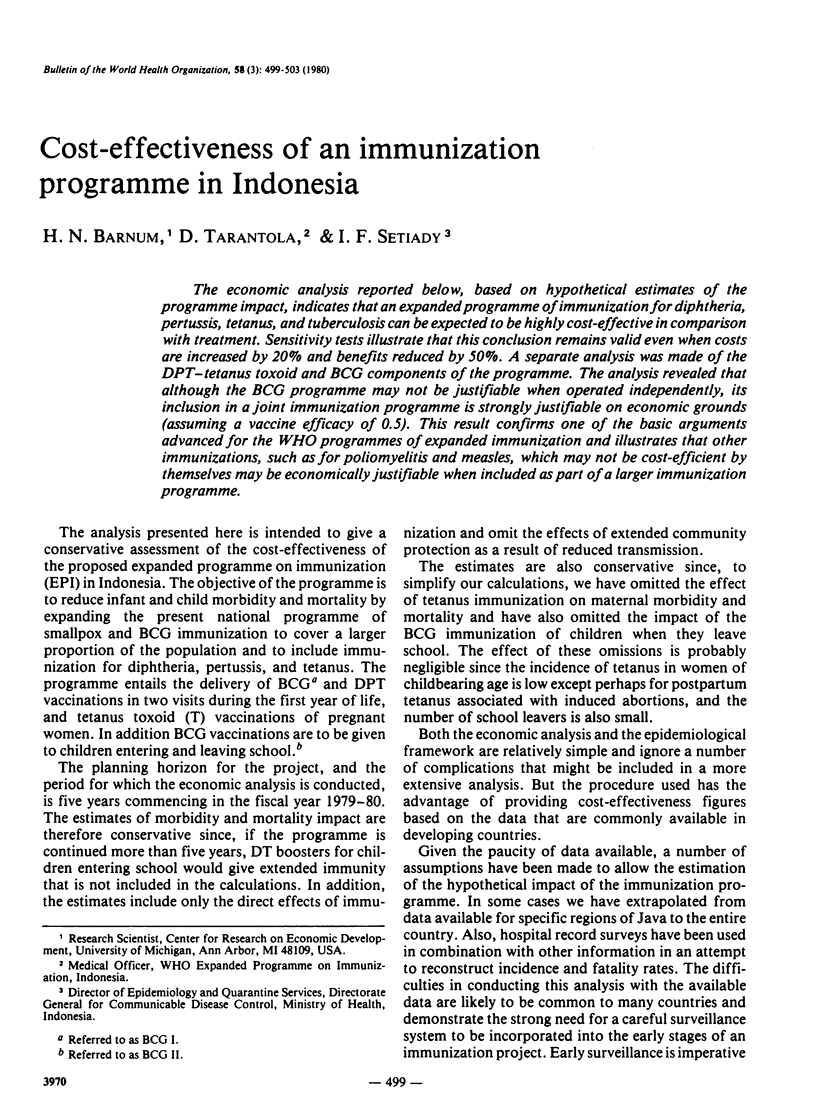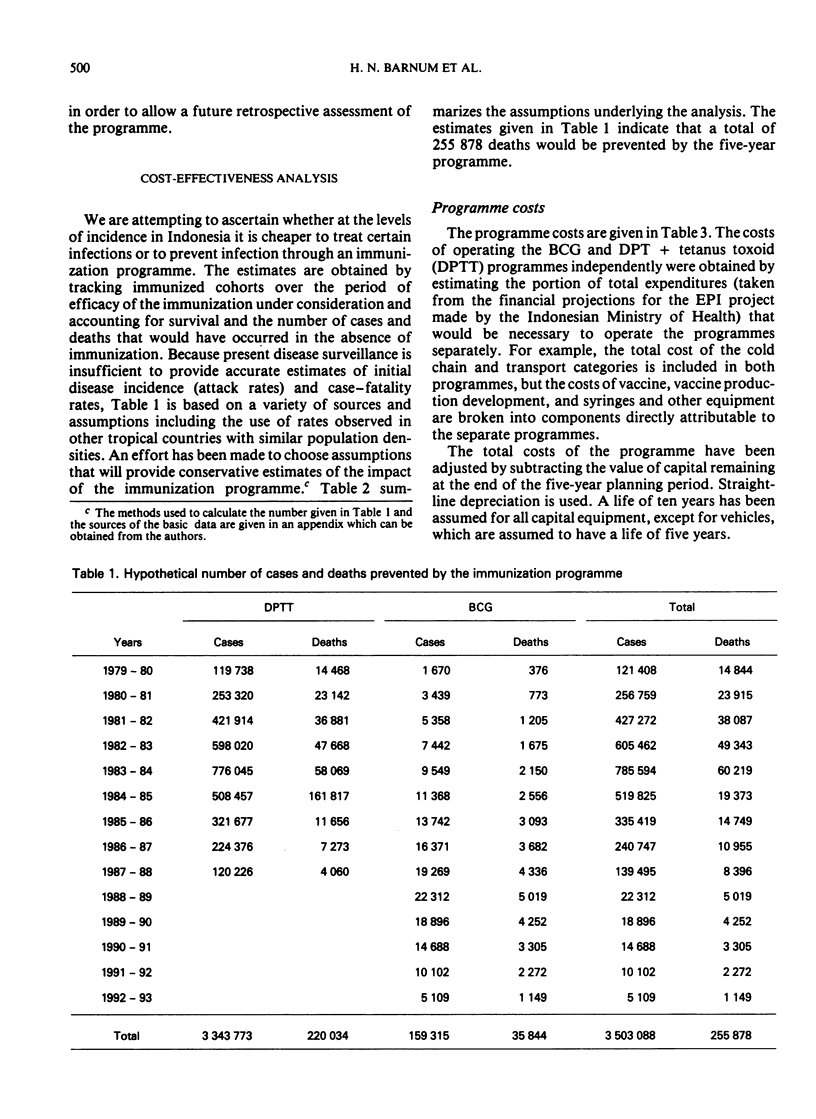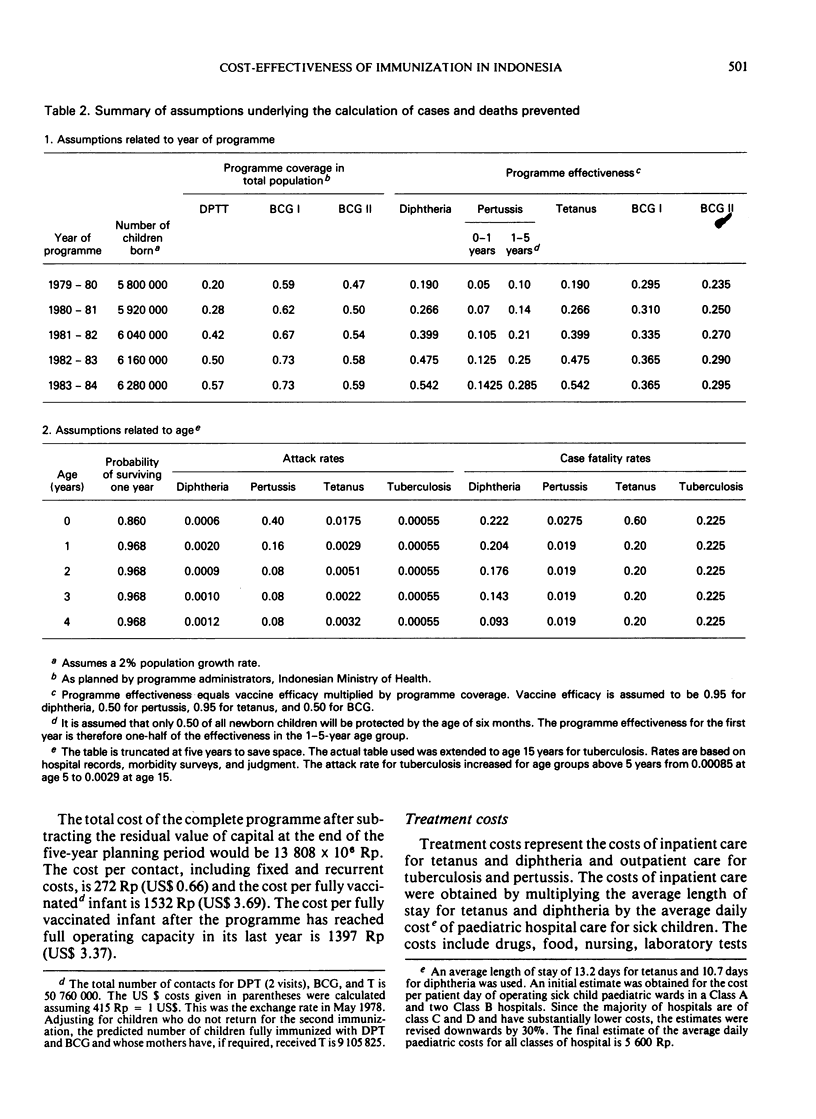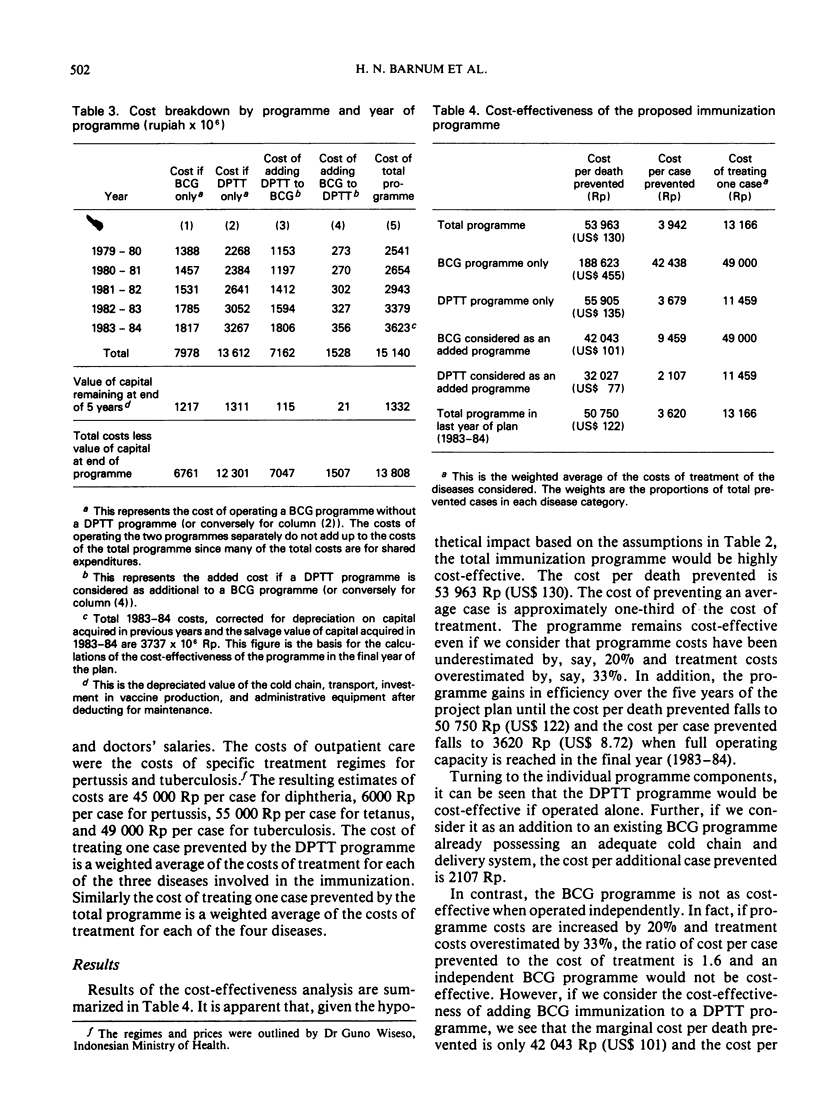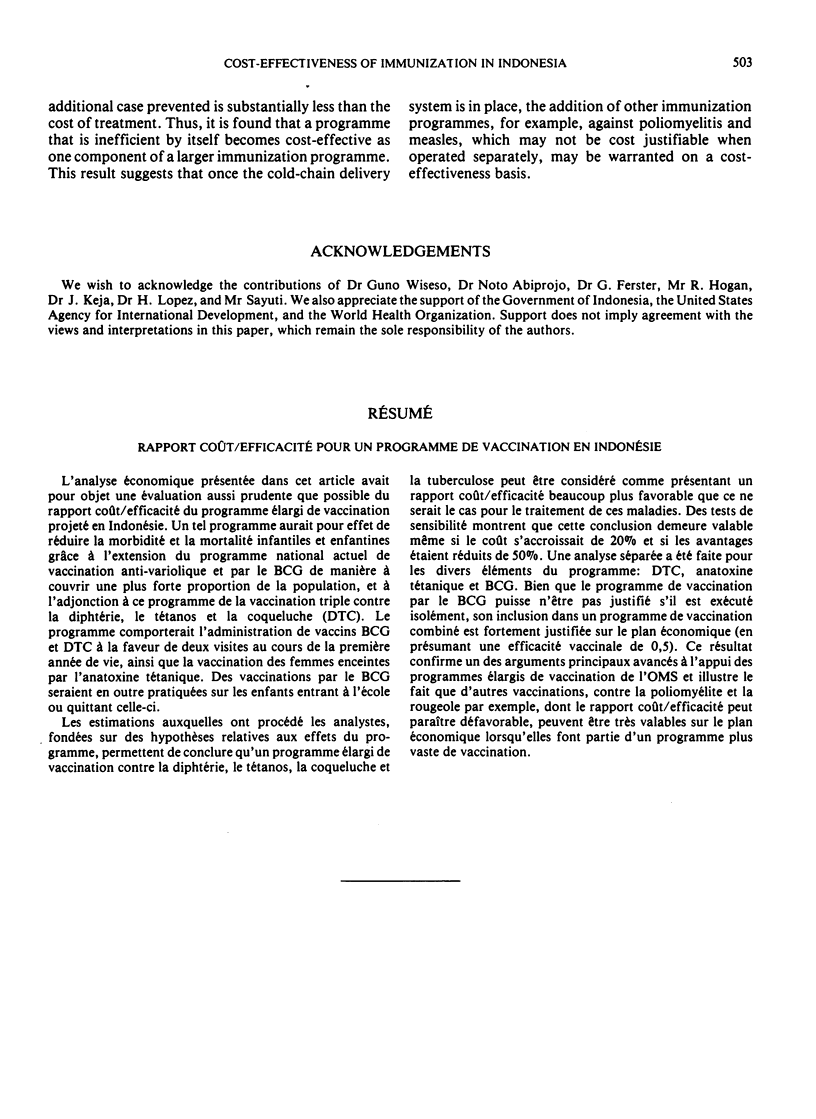Abstract
The economic analysis reported below, based on hypothetical estimates of the programme impact, indicates that an expanded programme of immunization for diphtheria, pertussis, tetanus, and tuberculosis can be expected to be highly cost-effective in comparison with treatment. Sensitivity tests illustrate that this conclusion remains valid even when costs are increased by 20% and benefits reduced by 50%. A separate analysis was made of the DPT—tetanus toxoid and BCG components of the programme. The analysis revealed that although the BCG programme may not be justifiable when operated independently, its inclusion in a joint immunization programme is strongly justifiable on economic grounds (assuming a vaccine efficacy of 0.5). This result confirms one of the basic arguments advanced for the WHO programmes of expanded immunization and illustrates that other immunizations, such as for poliomyelitis and measles, which may not be cost-efficient by themselves may be economically justifiable when included as part of a larger immunization programme.
Full text
PDF